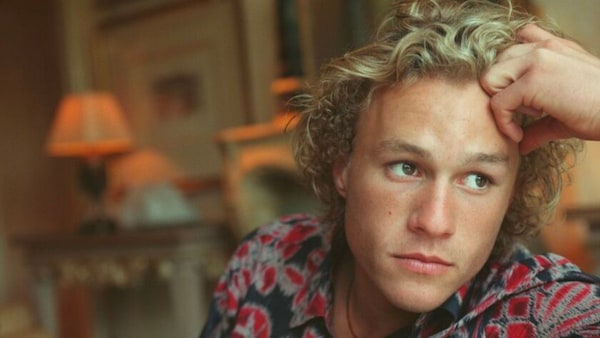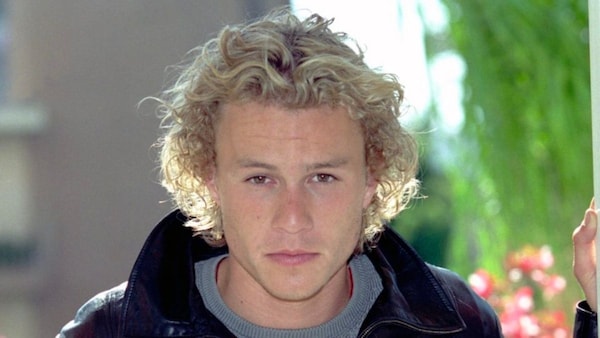Heath Ledger: A performer and a dreamer
On Heath Ledger’s 14th death anniversary, a brief look at his short and impactful career as an actor.

Last Updated: 07.10 AM, Jan 14, 2022
Heath Ledger’s untimely demise 14 years ago still sends shock waves across Hollywood and global film industries. An actor par excellence, Ledger had an innate sense of self that buoyed each of his roles through his short-lived career. His love for the craft was intense enough for him to quit a school education and pursue his penchant for the performance arts.

Ledger was famously known to be desperate for roles that piqued his interest. For example, he went across the country from Perth to Sidney, to ensure that he got the small role in Clowning Around.
The initial years of his career were marked by two-bit roles where his charm and acting prowess could not be at full display. Productions like Blackrock, 10 Things I Hate About You, Ship to Shore, and Roar had him appear on screen for only some time, but even then, the actor managed to make a mark.

The early 2000s was when Ledger began getting his due. His turn as Ennis Del Mar in Ang Lee’s 2005 film Brokeback Mountain proved more than fruitful, since it immediately grabbed the attention of critics.
The industry was now forced to take notice of this unassuming budding talent whose effortless acting was fast winning hearts.
Ennis’ quietude and constant yearning for his soulmate was both heartwrenching and beautiful. Ledger succeeded in depicting Ennis’ complete helplessness and prolonged suppression of true emotions to lead a false life and celebrate it like it meant something to him.
Much like Lee’s style of filmmaking, Ennis thrived in silences and the character’s lack of verbosity is what attracted Ledger towards the role. Referring to Ennis, the actor once said, “The lack of words he [Ennis] had to express himself, his inability to love made the role enjoyable.” His role won him an Oscar nomination, making him the ninth-youngest nominee to have received the honour at only 26.
The period that followed saw the actor take up some interesting roles. From the Australian film Candy, where he portrayed a heroin addict grappling with his attempts at sobering up, to an on-screen depiction of Bob Dylan in Todd Haynes’ 2007 film I’m Not There, Ledger was dabbling with a wide range of characters.
The crowning glory came as Ledger stepped into the shoes of the Joker, a “psychopathic, mass-murdering schizophrenic clown with zero empathy.” The complex, multi-dimensionality of the Joker demanded that Ledger go the extra mile in depicting the clown’s abject madness.
Ledger, a true-blue method actor, reportedly locked himself up in a London hotel room for a month where he honed the Joker’s persona so as to embody it fully. In his daily journal that he maintained, the actor’s gradual descent into a dark place was evident and menacing with the turn of each page with a “bye bye” at the end.
The actor’s father Kim spoke about this and confessed that Ledger “liked to dive into his characters, but this time he really took it up a notch”.
Ledger’s pre-existing problems of insomnia and anxiety were only triggered by his preparations for the Joker. The actor was known to have frequent bouts of sleeplessness in which potent medicines also failed to provide him with peaceful sleep. T
he condition grew so dire that Ledger developed a sort of immunity to even Ambien pills – he would take one and wake up merely within an hour in “a stupor…his mind still racing”.
Even his last conversation with his sister and mentor entailed him reassuring her that he’ll be fine moments after she warned him against titrating medicinal drugs on his own and mixing potent combinations. Within the next few hours, his lifeless body was discovered in his apartment after he had overdosed on drugs.
Ledger’s legacy remains strong till date. Six months post his demise, the actor posthumously picked up his only Oscar for his role as the Joker in Christopher Nolan’s The Dark Knight.
Even though the same role has been reprised onscreen by Jared Leto and later, Joaquin Phoenix (also earning him the Best Actor Oscar), Ledger’s version was arguably the best. A talent gone too soon, Ledger’s limited but impactful filmography still inspires many, both as a performer and an audience.

 Premium
Premium